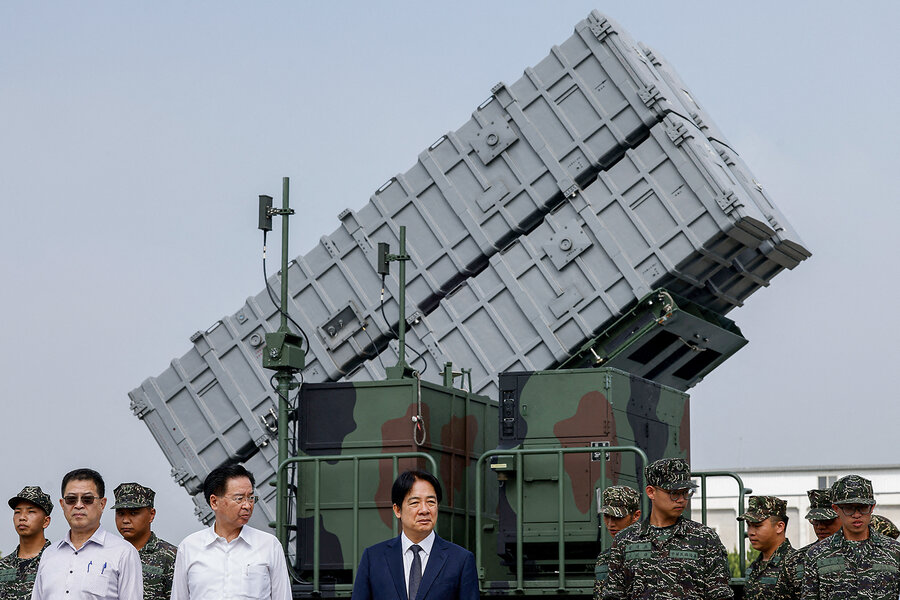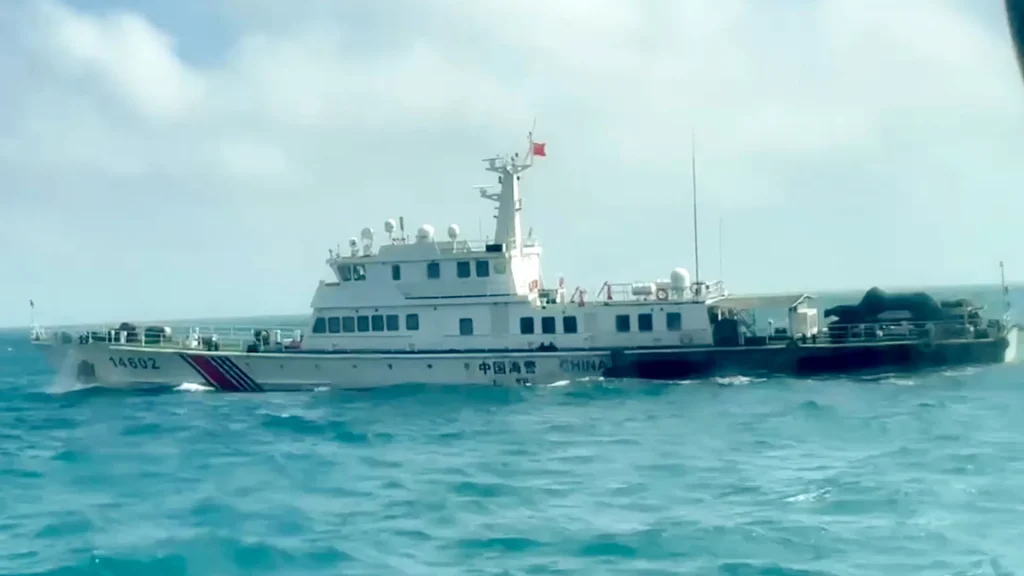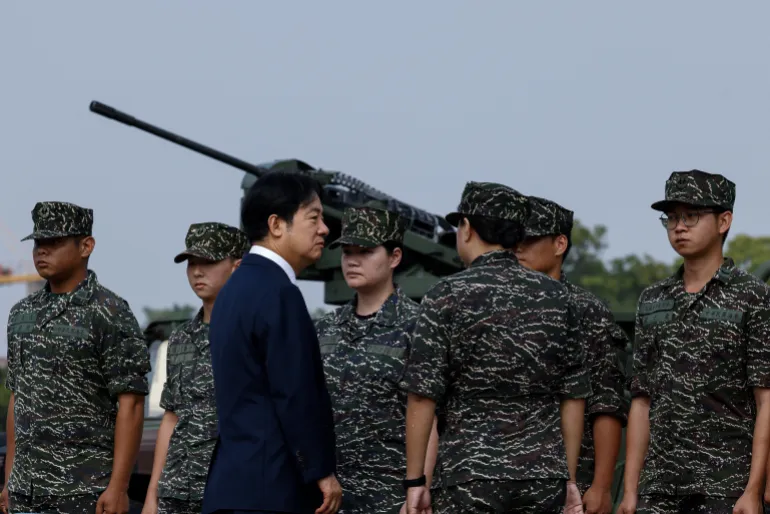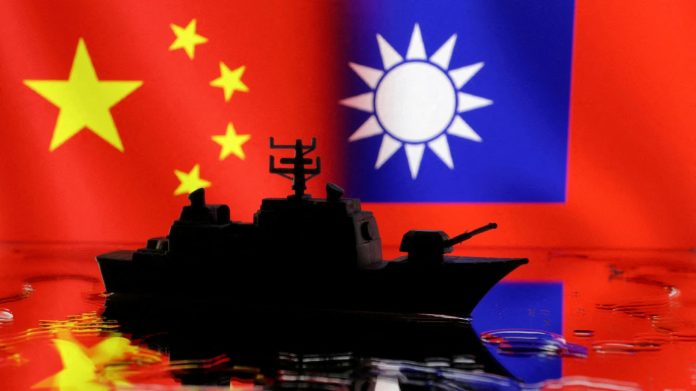Taiwan’s Defense Minister, Wellington Koo, emphasized on Wednesday that a real blockade of Taiwan by China would constitute an act of war, carrying significant global consequences, especially for international trade. His comments came in response to recent Chinese military drills that simulated such a blockade scenario around the island. China, which views Taiwan as part of its territory, has ramped up military activities around the democratically governed island in recent years, conducting exercises that mimic blockades and assaults on ports. Taiwan, however, firmly rejects Beijing’s sovereignty claims.
The most recent Chinese military drills, known as “Joint Sword-2024B,” took place last week and included exercises simulating blockades of key ports and attacks on land and sea targets near Taiwan. However, Koo noted that these war games did not involve the establishment of no-flight or no-sail zones, which are typically enforced during an actual blockade. He stressed the difference between such drills and a real blockade, noting that under international law, a true blockade would be considered an act of war according to United Nations resolutions.

Koo pointed out that the impact of a Chinese blockade on Taiwan would extend far beyond the island itself, as a significant portion of the world’s trade—about 20%—passes through the Taiwan Strait. “The international community could not sit by and just watch,” Koo warned, indicating that the global implications would prompt a broader international response. He further emphasized that the drills, though concerning, are not the same as an outright blockade, but any actual move to prevent aircraft and ships from entering or leaving Taiwan would have severe repercussions.
While the war games last week were limited in duration, China’s military activity around Taiwan has been ongoing. China has not ruled out using force to bring Taiwan under its control, which raises concerns over the potential for a military confrontation. On Wednesday, Taiwan’s Defense Ministry reported that a Chinese aircraft carrier group, led by the Liaoning, sailed through the Taiwan Strait, traveling in a northerly direction after passing the Taiwan-controlled Pratas Islands. The Pratas, located at the northern end of the South China Sea, are an area of strategic importance.
According to the Defense Ministry, Taiwan’s forces closely monitored the movements of the Chinese ships, which were operating on the western side of the Taiwan Strait’s median line. This median line, an informal boundary between Taiwan and China, is not officially recognized by Beijing, which has increasingly ignored the line in recent years. Taiwan’s concerns grew as the Liaoning carrier had also participated in the war games near Taiwan last week, with aircraft reportedly launching from its deck during exercises off Taiwan’s southeastern coast.

China’s military has frequently sailed its carriers through the Taiwan Strait, including in December 2023, shortly before Taiwan held elections. The Liaoning’s presence in the region is part of a broader pattern of military maneuvers meant to assert China’s dominance over the 180-kilometer-wide Taiwan Strait, a critical passageway for international trade. China insists it has jurisdiction over the strait, a claim disputed by both Taiwan and the United States. The U.S. and its allies regularly conduct freedom of navigation operations in the strait, challenging China’s claims and affirming the strait as an international waterway.
In addition to concerns over Chinese military activity, Taiwan has expressed alarm over China’s increasing use of its coast guard in recent exercises. There is particular worry that China may attempt to assert legal authority over the Taiwan Strait by boarding and inspecting Taiwanese civilian vessels. In response, Taiwan’s coast guard has stated that it would defend its ships using a principle of “neither provoking nor backing down,” ensuring they resist any unlawful inspections with all available resources.
Taiwan’s government has repeatedly stressed that it will not bow to Chinese pressure or aggression, even as tensions in the region continue to rise. The situation in the Taiwan Strait remains a flashpoint for international relations, with the potential for any Chinese escalation to have far-reaching consequences for global security and trade. As China continues to flex its military might near Taiwan, international observers, particularly the United States and its allies, are closely watching developments, prepared to intervene diplomatically or militarily should the need arise.

For Taiwan, the threat of a blockade and potential military action by China presents not only an immediate danger but also a broader challenge to its sovereignty and the stability of the region. As the island strengthens its defenses and seeks support from the international community, the stakes remain high for all parties involved, with the potential for conflict to disrupt global trade and impact the balance of power in the Indo-Pacific region.




